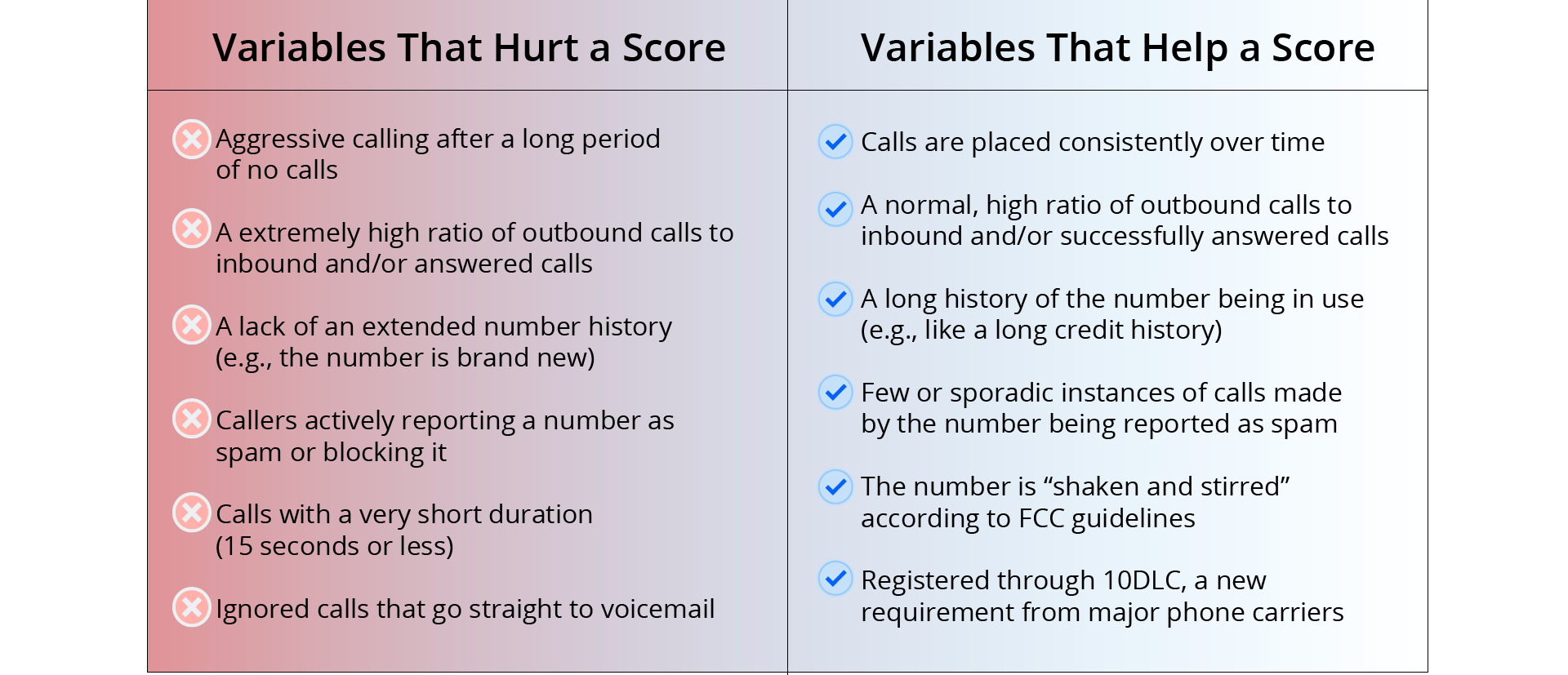Caller ID reputation is a crucial aspect of B2B sales. It is the image that businesses project to their customers and clients through caller ID information. A poor caller ID reputation can lead to distrust, and potential customers may not answer your calls, leading to missed opportunities. AT&T is one of the major players in the telecommunication industry and has developed a system to monitor caller ID reputation to protect consumers. This article will provide you with a clear understanding of AT&T’s caller ID reputation system, and tips to improve your business’s phone number reputation.
Understanding AT&T’s Caller ID Reputation System
AT&T has developed a caller ID reputation system that evaluates businesses’ calling patterns, including frequency, call duration, and call history. This system assigns a score to each phone number based on their calling behavior. A higher score represents a positive reputation, while a lower score indicates a negative reputation – very similar to a credit score.
AT&T uses this score to identify potential spam or scam calls and prevent them from reaching customers’ phones. While the exact criteria that go into determining a phone number’s score are unknown to the public, there are some general variables that are known to improve or hurt a phone number’s score. For instance, if you use your business phone number for a high volume of outbound calls but receive very few incoming calls, AT&T may see this as spammy behavior and lower the number’s score.

Tips to Improve Your Caller ID Reputation with AT&T
To improve your caller ID reputation with AT&T, and prevent your business phone number from showing up as “Scam Likely” on outgoing calls, there are several tips you can follow:
- Ensure Consistency in Caller ID Information: Use a consistent phone number and business name in your caller ID information. Inconsistencies can trigger AT&T’s spam filters and negatively impact your reputation.
- Implement Anti-Spoofing Measures: AT&T encourages businesses to implement anti-spoofing measures, specifically the FCC’s STIR/SHAKEN standards, to prevent fraudulent calls. These measures authenticate your phone number and business name and help build trust with your customers.
- Respond to Customer Complaints: Address customer complaints promptly to prevent them from reporting your calls as spam. Responding to complaints can help build trust with your customers and improve your reputation.
- Monitor Your Caller ID Reputation Score: Keep track of your reputation score and take necessary measures to improve it. For specific steps on improving your caller ID reputation, see our article on how to avoid showing up as “Scam Likely” on outbound calls.
- Work with a Third-Party Caller ID Reputation Service: Consider working with a third-party service provider to monitor and improve your caller ID reputation. Software such as Kixie can not only provide you with valuable insights and strategies to improve your caller ID reputation, but you can also purchase clean phone numbers with high reputation scores.
In conclusion, caller ID reputation is an essential aspect of B2B sales. A positive reputation helps build trust with potential customers, leading to better opportunities and increased sales. Following the tips mentioned above can help you improve your reputation score and boost your B2B sales strategy. Need help getting more out of your outbound sales calling strategy? Chat with one of Kixie’s knowledgeable team members to see how upgrading your calling technology can boost your dials and connects.



